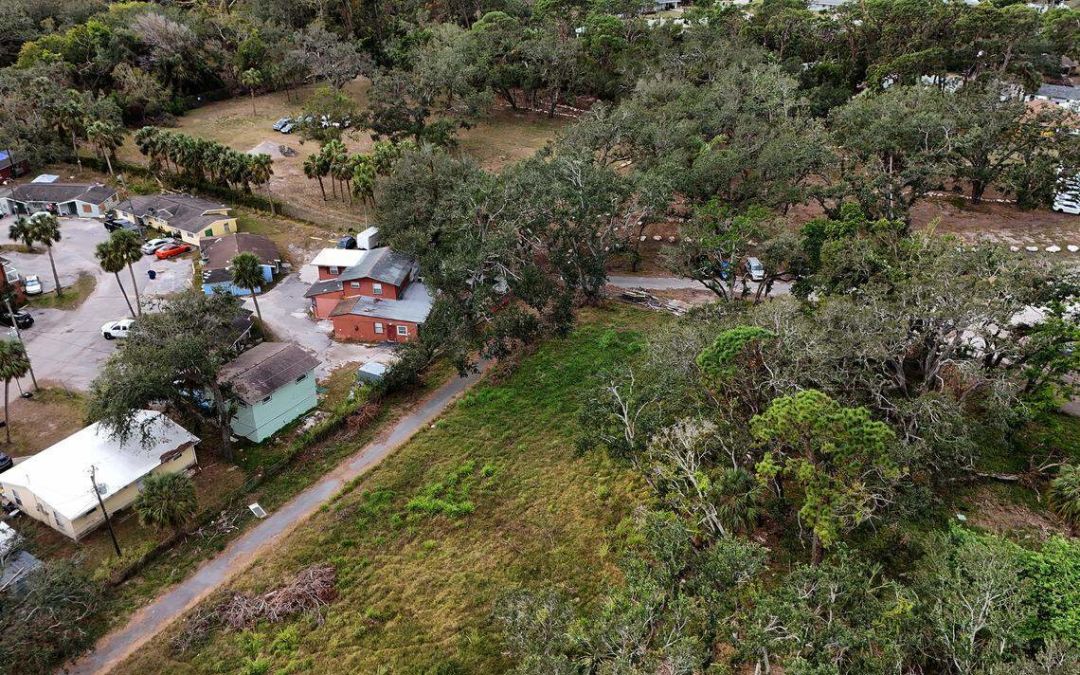A New Workforce Housing Initiative Is on the Verge of Launching in Manatee County

Image: Courtesy Photo
After two years of meetings, a cohort of mid-sized Manatee County businesses is trying a different fix for hiring headaches: co-owning housing where workers will live.
At an Aug. 18 “Breakfast with Purpose,” they’ll be asked to join Forest Cove, a 156-unit complex priced below prevailing rents and managed by One Stop Housing. Previously called Eagle Rock, Forest Cove will be a 156-unit development aimed at easing Manatee County’s housing squeeze.
The Aug. 18 event at Anna Maria Oyster Bar Landside will double as a recruitment drive. One Stop Housing and Oysters Rock Hospitality, the group that owns Anna Maria Oyster Bar, will be joined by the Bradenton Area Economic Development Corporation. They're inviting employers to hear a pitch for the development.
“We hope to close in October and break ground by the first quarter of 2026, if not sooner,” says Mark Vengroff, managing partner of One Stop Housing.
One Stop Housing is a Sarasota-based developer-operator that builds, owns and manages workforce-priced apartments across Manatee and Sarasota counties, as well as Central Florida and Memphis, Tenn. It handles development, construction and on-site management while, in this case, it is targeting rents that amount to roughly 30 percent of wages or less.
Phase One of the Forest Cove project calls for 155 workforce units plus a manager’s unit at 1478 45th Ave. Circle W. and will replace 28 deteriorated wood cottages on the roughly 2.2-acre site, which One Stop already owns. The plan, prepared by architect Tim Snyder, places two four-story buildings on the parcel, with a mix of studios, one-bedrooms, and two-bedrooms—some with dens—and on-site amenities that include a pool, dog park, playground, laundry room, manager’s office and a clubhouse designed to accommodate telehealth needs or daycare space.
The financing relies on local ingredients: $5.5 million in One Stop equity; a $5.66 million Manatee County catalytic loan; and a $13.2 million bank loan through Cogent, supplemented by employer equity stakes. Vengroff says the county loan carries a low interest rate—“2.5 percent or half the federal rate, whichever is higher,” he says—and that Cogent and Northern Trust are prepared to finance employer buy-ins.
The appeal for employers is practical. Participating companies receive an ownership return that Vengroff says should land in the 6 percent to 7 percent range, plus appreciation, while their workers gain access to units priced below market-rate rents. If a worker leaves their job, they may complete the current lease term, it but will not be renewed at Forest Cove. Strong tenants may be placed elsewhere within One Stop’s larger portfolio of affordable housing.
Thus far, the roster of participating companies are CareerSource, Goodwill Industries Manasota, Oysters Rock Hospitality, S&B Metal Products, Spirit Movers and One Stop Housing, which is also the operator.
Pricing is central to the model. RentCafe’s November 2024 averages for the Bradenton area show studios at $1,529, one-bedrooms at $1,759, two-bedrooms at $2,038 and an overall Manatee County average near $1,848 a month. Forest Cove targets rents 17 percent to 39 percent below those levels, Vengroff says. He puts a new studio at $925 and a two-bedroom around $1,700 (utilities will sit outside the base rent, he says). He expects only modest annual increases, on the order of $25 a year.
Those numbers track with what employers say they are seeing on the ground. “Affordable housing close to work is definitely an issue, especially in recent years,” says Eleni Sokos, executive vice-president of Oysters Rock Hospitality, which employs roughly 450 people across its seven restaurants, from Ellenton to North Port. On Anna Maria Island, she says, the prevalence of vacation rentals prices out many staff; Forest Cove’s location, on the other hand, is a seven-minute drive from the company’s flagship on U.S. 41. “Putting people closer to work increases quality of life,” she says.
Oysters Rock plans to allocate apartments by lottery. “We’re still early days,” Sokos says. “Every employee gets one entry—maybe additional ones with every year [they've worked with us], or if they have dependents or are a manager. I think that’s the most equitable way to look at it. These are the folks who have invested in us.”
The affordable housing need is well-documented. In surveys conducted through the EDC and participating firms, 78.5 percent of more than 700 respondents reported being cost-burdened—that is, spending more than 30 percent of income on rent—with the rate rising to 90 percent among those earning $30,000 or less. Regionally, United Way’s most recent ALICE (Asset-Limited, Income-Constrained, Employed) Report places Manatee County’s 2023 “survival budget” for a family of four at $95,004, with 31 percent of households classified as ALICE; the median household income is $79,524. The data helps explain why, Sokos says, “people are leaving the state of Florida. Cost of living is the main reason. It’s not just rent. It’s utilities, your groceries—that adds up.”
According to a recent deep dive into local rent levels and affordability by Suncoast Searchlight, across Sarasota–Manatee, a renter now needs about $35.50 an hour to afford a modest two-bedroom at fair-market rent (about $1,846/month), but the typical renter earns $21.81—a gap that pushes many into severe cost burdens or multiple jobs. At Florida’s $13 minimum wage, that two-bedroom would require roughly 115 hours a week of work. In short, even as some vacancies rise, a basic apartment remains out of reach for many Manatee County renters.
Forest Cove also reflects a shift in employer tactics. In 2020, Oysters Rock president John Horne publicly opposed Florida’s Amendment 2, which is phasing in a $15 minimum wage by 2026; he argued then that the pandemic-era timing and cost would strain restaurants. Sokos says the company adjusted with incremental menu changes and operational savings, and frames Forest Cove as a complementary strategy focused on retention and stability.
“Once [employees are] hired, we want them to stay long term,” she says, noting that 112 of its staffers have been with the company for five years or more. “We try to create a culture of people who want to stay.”
For the Bradenton Area EDC, the project is a response to a years-long trend. In a previous interview on the project’s earlier days, EDC president Sharon Hillstrom said local employers were losing candidates and staff to housing costs and commute times, and that a multi-employer solution could be scaled. The Forest Cove solicitation follows that logic: smaller, locally controlled firms can move faster than public companies with out-of-state boards.
Some details remain to be finalized. Vengroff says four additional employer commitments would allow the team to close financing and wrap site plan approvals. If that happens, a groundbreaking in early 2026 would put construction of the first phase in motion at a time when rent growth has cooled but remains out of reach for many service-economy workers. “We just need a few more employers,” Vengroff says. “Then we can launch. The full capital and banks are locked in."
Business leaders who want to learn more can attend "Breakfast with Purpose" on Monday, Aug. 18, from 8 to 9:30 a.m. at Anna Maria Oyster Bar Landside, 6906 14th St. W., Bradenton. To register, click here.



